Clancy Tucker's Blog, page 246
September 20, 2015
21 September 2015 - THE FIRST ANIMALS IN SPACE

THE FIRST ANIMALS IN SPACE
G'day folks,
Ever wondered about animals going into space? Check this out ...
Though far less famous than later non-human astronauts, the first animals in space were a group of fruit flies, launched to an altitude of 42 miles at the tip of a Nazi-designed V-2 rocket by American military scientists on February 20, 1947. The flies, members of the often-studied species Drosophila melanogaster, made their journey alongside packets of rye and cotton seeds as part of an experiment to study the effects of cosmic rays on living organisms. The flies’ container parachuted to the ground and the insects were retrieved in perfect health.
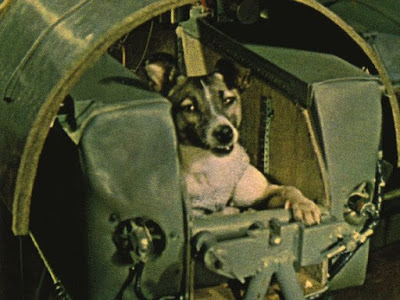
The first vertebrates sent into space were a series of ill-fated monkeys and mice launched between 1948 and 1951 by American researchers. On June 14, 1949, a Rhesus monkey named Albert II blasted to an altitude of 83 miles in a V-2, surviving the flight but dying on impact. A year later, the U.S. launched a mouse and photographed its behavior in a weightless state, although it too was not recovered alive.
The Soviet Union had better luck, launching (to 62 miles) and recovering a pair of dogs, Tsygan and Dezik, on July 22, 1951. Two months later, the U.S. launched and retrieved an anesthetized monkey named Yorick along with 11 mice. Alas, poor Yorick died after his capsule overheated in the New Mexico sun while awaiting recovery, though nine of the mice survived. Six years later the Soviet Sputnik II probe carried the first animal into orbit, a former stray dog named Kudryavka (“curly”) but later known to the world as Laika (“barker”). She died in her orbiting capsule—no provisions had been made to return her to earth alive—sparking debate in the West over the ethics of sacrificing animals to advance science.
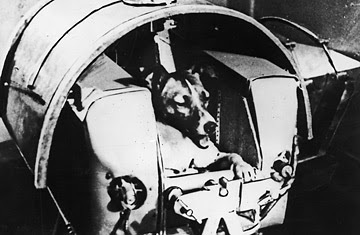
In 1960, the Soviet’ Sputnik 5, carrying two dogs as part of its animal-laden cargo, was successfully recovered after orbit. The following year, despite Cold War tensions, Soviet Premier Nikita Khrushchev gave the puppy of one of Sputnik 5’s dogs to young Caroline Kennedy. Pushinka, as she was known, eventually gave birth to four puppies of her own, which President John F. Kennedy referred to as the “pupniks.”

Clancy's comment: Mm ... I've never been interested in space travel. The amount of money spent on it is obscene, when you consider the issues that need to be fixed here on earth. Sending animals into space is not acceptable either.
I'm ...


Published on September 20, 2015 03:23
September 19, 2015
20 September 2015 - WHO WAS LADY GODIVA?
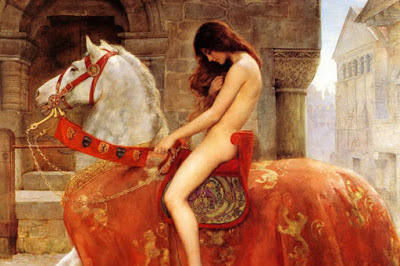
WHO WAS LADY GODIVA?
G'day folks,
Ever wondered about Lady Godiva? Wonder no more ...
You might associate the name “Godiva” with a brand of Belgian chocolates, but it was first popularized as part of a 900-year-old English legend. The original Lady Godiva was an 11th century noblewoman married to Leofric, the powerful Earl of Mercia and Lord of Coventry. As the story goes, Godiva was troubled by the crippling taxes Leofric had levied on the citizens of Coventry. After she repeatedly asked him to lessen the burden, Leofric quipped that he would lower taxes only if she rode naked on horseback through the center of town.
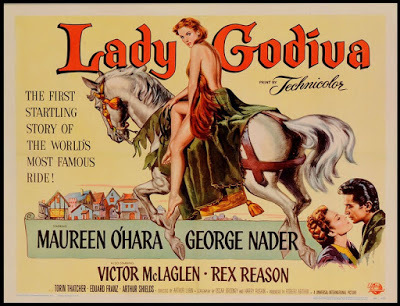
Determined to help the public, Godiva stripped off her clothes, climbed on her horse and galloped through the market square with only her long flowing hair to cover herself. Before leaving, she ordered the people of Coventry to remain inside their homes and not peek, but one man, named Tom, couldn’t resist opening his window to get an eyeful. Upon doing so, this “Peeping Tom” was struck blind. After finishing her naked ride, Godiva confronted her husband and demanded that he hold up his end of the bargain. True to his word, Leofric reduced the people’s debts.
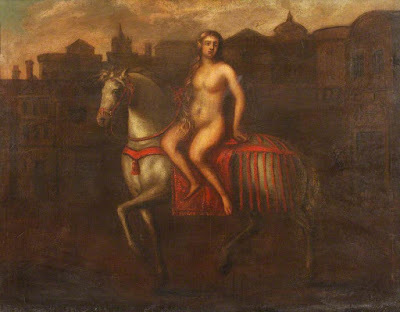
While most historians consider her nude horseback ride a myth, Lady Godiva—or “Godgifu” as some sources call her—was indeed a real person from the 11th century. The historical Godiva was known for her generosity to the church, and along with Leofric, she helped found a Benedictine monastery in Coventry. Contemporary accounts of her life note that “Godgifu” was one of only a few female landowners in England in the 1000s, but they make no mention of a clothes-free horseback ride. That story appears to have first cropped up some 100 years after her death in a book by the English monk Roger of Wendover, who was known for stretching the truth in his writings. The legend of “Peeping Tom,” meanwhile, didn’t become a part of the tale until the 16th century. The Godiva myth was later popularized in songs and in verse by the likes of Alfred, Lord Tennyson, who wrote a famous poem called “Godiva” in 1840.

Clancy's comment: Well, there ya go. Now, ya know.
I'm ...


Published on September 19, 2015 03:37
September 18, 2015
19 September 2015 - BRITISH SLANG

BRITISH SLANG
G'day folks,
Welcome to some more British slang. Many of these expressions are also used in Australia.
Daft - My Dad used to call me a daft 'apeth which is short for a daft half penny (in old money). It basically means stupid.
Dekko - To have a look at something.
Dear - If something is dear it means it is expensive. I thought Texan insurance was dear.
Dicky - Dicky rhymes with sicky and means you feel sick.
Diddle - To rip someone off or to con someone is to diddle them. When you visit England, check your change to make sure you haven't been diddled!
Dim - A dim person is stupidor thick or a dimwit. Dimwit - Someone a bit on the dim side.
Dishy - If someone is a bit of a dish or a bit dishy it means they are attractive or good looking.
DIY - This is short for do it yourself and applies not just to the DIY stores but also to anything that you need to do yourself. For example, if we get really bad service in a restaurant (oh, you noticed!) then we might ask the waiter if it is a DIY restaurant - just to wind them up.
Do - A party. You would go to a do if you were going to a party in the UK.
Do - If you go into a shop and say "do you do batteries?" it means "do you sellbatteries".
Do - If you drive along a motorway in the wrong lane the police will do you. You could then tell your friends that you have been done by the police. Prosecute is another word for it!
Doddle - Something that is a doddle is a cinch, it's easy. Unlike ordering water in Texas with an English accent, which is definitely not a doddle!
Dodgy - If someone or something is a bit dodgy, it is not to be trusted. Dodgy food should be thrown away at home, or sent back in a restaurant. Dodgy people are best avoided. You never know what they are up to. Dodgy goods may have been nicked. When visiting Miami I was advised by some English chums that certain areas were a bit dodgy and should be avoided!
Dog's bollocks - You would say that something really fantastic was the dog's bollocks. Comes from the fact that a dog's bollocks are so fantastic that he can't stop licking them! Nice huh? Often shortened to just "The dog's".
Dog's dinner - If you make a real mess of something it might be described as a real dog's dinner. A bit like some joint Anglo-American approaches to Eastern Europe for example!
Donkey's years - Someone said to me the other day that they hadn't seen me for donkey's years. It means they hadn't seen me for ages.
Drop a clanger - When I asked a large lady on the tube if she would like my seat since she was so obviously pregnant, she took the seat then told me she was fat, not pregnant! Boy did I drop a clanger. You might make a gaffe. Either way it was horrendously embarrassing, especially as half the people on the tubehad heard me!
Duck - In and around Leeds you will find older people might call you "duck" in the same way that they might call you "love" or "dear" in other places. Usually pronounced more like "dook", which rhymes with "book".
Duff - Anything that is duff is useless, junk, trash. It usually means that the object doesn't do the job it was intended for. Our last Prime Minister was pretty duff!
Duffer - Any person that is duff could be referred to as a duffer. The Prime Minister was a duffer.
Dull - You would say something that was no longer sharp was dull. We would say blunt. To us something is dull if it is boring. It can apply to things - like a film could be dull. It also applies to people - I can think of several people who are dull!

Clancy's comment: Well, there ya go, Cobber. Ope ya loved these little blighters.
I'm ...


Published on September 18, 2015 03:43
September 17, 2015
18 September 2015 - GREG SMITH - Guest Author

GREG SMITH
- Guest Author -
G'day folks,
Welcome to my interview with an author who was born in Australia but now lives in the USA. Welcome, Greg ...
TELL US A LITTLE ABOUT YOURSELF AND YOUR WRITING JOURNEY.
Originally, I’m an Aussie from Sydney, Australia (the Land Down Under) but have been living in the Pacific Northwest, USA since 1999 after meeting a beautiful lady on the Internet back in late 1997. I am now a fully-fledged US citizen and proud of my dual status. As far as my interest in writing, that stems from my early years (millennia ago) in primary school when I always rated top marks for my composition writing in English class. But I was also avidly interested in art and that took precedence over my writing as I pursued a career in graphic design.
WHEN AND HOW DID YOU BECOME A WRITER?
It wasn’t until late in my life and career that I began getting the itch to write — that amounted to a break of over 50 years since putting pen to paper! But one day I mentioned to my wife an idea for an erotic thriller story and, to my surprise, she liked it and prompted me to try writing it. I took 6 months to ‘pen’ it and found an independent publisher who wanted to publish the book. Soon afterwards however, the business closed so after months of research I took my manuscript to CreateSpace and self-published the book under a new cover. KILLING SOFTLY is currently available on Amazon.com.
WHAT TYPE OF PREPARATION DO YOU DO FOR A MANUSCRIPT? DO YOU PLAN EVERYTHING FIRST OR JUST SHOOT FROM THE HIP?
I have just completed the fourth draft of my third book, YOU CAN RUN, which in actual fact is the sequel to my second, THE PITS. After releasing KILLING SOFTLY I undertook an online course in creative writing to better understand the ‘proper’ process and improve my style, etc.
I’m not sure if I follow the standard process adopted by most writers. Once I have a clear idea of how a story starts and finish I tackle all the necessary research needed to better understand my subject and associated fields, etc. For THE PITS this meant several intense months or online research plus plying my son for insider details of being a US Marine. Once I have all that info at hand I begin writing. I essentially stick to my original story idea but as I write I allow my characters to determine any deviations they wish to take. Quite often some of their decisions surprise me. On one occasion I recall mentioning to my wife that I was caught by surprise when a murder suddenly happened — I hadn’t expected it. She thought I was crazy. “You’re the one writing the book, for heaven’s sake, how could YOU be surprised by your own story?” Well, I look upon my writing as a collaboration between myself and my characters; we work together to bring a story idea to life for the sake of our readers.
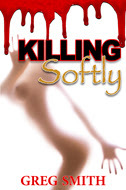
WHAT DO YOU ENJOY MOST ABOUT BEING A WRITER?
Two things: first of all I simply love researching for my book. I’ve always had a great fascination of history, people, technology, etc., all of which usually comes into play in my writing to some degree; second, I enjoy being surprised by twists and unsuspected actions employed by my characters during their effort to carry the story. I’ve had to rein them in at times; to keep them on track. Eventually we all find ourselves meeting somewhere close to the last chapter so that we can mutually agree on a suitable ending—but not always!
WHAT IS THE HARDEST THING ABOUT BEING A WRITER?
Whether a writer chooses to follow the traditional publishing path or, as so many do these days, to self-publish, the hardest part of writing is the realization that if you expect your work to become noticed, to be even part way successful—all that responsibility falls on the writer’s shoulders. I belong to numerous writers’ forums and the constant question that seems to always be the topic of conversation is “what do I have to do to market or promote my book well?” or words to that effect. It is something that demands a writer’s attention and time yet, at the same time, drags you away from your real love and aspiration — to write the next book!
WHAT WERE YOU IN A PAST LIFE, BEFORE YOU BECAME A WRITER?
In an earlier question I alluded to my pursuing a career as a graphic designer. I now have 30 + years experience in that field and, interestingly enough, the majority of that time was spent working in the publishing and printing industries. I’ve lost count of the number of books for which I’ve designed covers and laid out. There was a short spell, right out of high school, when I worked in a boat-building yard for 2-3 years. Strange as it may seem to some, I look back on those years as some of the best in my life. The company was small, employing some dozen workers at its peak, but through all that I remained the sole true blue Aussie among a fantastic team of Germans, an Hungarian, a Canadian, a Swede, and Austrians.
WHAT IS YOUR GREATEST WRITING ACHIEVEMENT?
That has yet to come. Hopefully it will prove to be my major project, which has been in the works for the last few years, and which I plan to tackle once my current book is released.
WHAT ARE YOU WORKING ON AT THE MOMENT?
Right now I’m in the process of finalizing my third book, preparing it for my editor. It is titled, YOU CAN RUN, as is the sequel to its predecessor, THE PITS. I already have an idea for the third book in this developing series.
WHAT INSPIRES YOU?
Anything can inspire me. Take THE PITS for example. The idea for the story came to mind after reading an article on the ASPCA web site. As for the idea rattling round in my head for the next book, inspiration for that came from world news events from the passed year or so. As for my major project still in the works—an historical fiction novel—inspiration for that came from my love of a specific historical character and the desire to retell his story in a factual way. I’m guessing that future books may even be born from over hearing a few words from another person’s conversation. I believe that for any caught in the artistic world, whether it be music, painting, writing, sculpting, etc, inspiration cane come from anywhere and everywhere.
WHAT GENRE DO YOU WRITE?
My particular love is for mystery thrillers, adventure, and historical fiction. The Pits has been regarded by several reviewers as being an adventure/thriller crossover. I guess these will remain my fields of work.
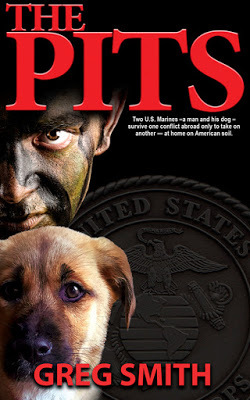
DO YOU HAVE ANY TIPS FOR NEW WRITERS?
Hmmm, that’s a hard one, but I guess I would base the answer on my own experience. The first thing I undertook to do was sign up for a series of online creative writing courses conducted by a reputable published author. Her assignments and remarks have been invaluable as I progress with my writing these days. And don’t forget all the fabulous group forums involving writers of all levels. These are a veritable gold mine of information, pointers, and advice—and contacts. Newbies will find themselves welcomed with open arms and nurtured by others who remember their own early days.
DO YOU SUFFER FROM WRITER’S BLOCK?
Fortunately and unfortunately I have never, as yet, suffered from that affliction. I say unfortunately because I have never wanted for ideas for a story but only lacked the time to put them all down on paper.
DO YOU HAVE A PREFERRED WRITING SCHEDULE?
Being a full time employed graphic designer, I have always struggled with that aspect of writing. All too often I have allowed work and life in general to spill over into those times I have scheduled for writing. I blame myself for not being disciplined enough but now that I am months away from retiring I hope to rectify that problem and set aside mornings as my preferred time to write.
WHAT IS YOUR GREATEST JOY IN WRITING?
Typing THE END after having made all the revisions and suggested changes by my editor. Next would be the joy of seeing the first copy come off the press and then have it posted on the Internet.
WHO IS YOUR FAVOURITE AUTHOR AND WHY?
To date, Jack Whyte is my favorite author. I regard his Camulod Chronicles series to be the most interesting and enthralling historical fiction works I have ever read. I’m fascinated by the way he is able to interweave authentic history with inspiring legend. This is my all time favorite genre, and Jack is its master!
WHAT’S THE GREATEST COMPLIMENT YOU EVER RECEIVED FROM A READER?
So far I would have to regard that as being the comment I received from one of the judges for a writing festival. Please indulge me as I share it with you:
THE PITS begins in Afghanistan where the scene is expertly set by the author. It is clear that the author has researched Marine life and the reader feels immediately at home in the world he has created. The heat, the dust, the constant danger are all excellently wrought and by the time the street battle commences in which Kramer and Shadow are both injured, the reader is well invested in both characters and rooting for their safety. This sets up the rest of the novel perfectly. A strong story with an intriguing premise, there is plenty here to keep a reader gripped throughout. Overall, there is much to be admired in this novel. The plot is well thought-out and intricately woven. The characters are strong and relatable – I particularly liked the character of Kramer’s mother. The author did a great job of bringing her to life. In fact, the chapter where Kramer visits his mother and father on the farm feature some of the best writing in the book and some great dialogue. Dialogue is a particular talent of this author’s, with interactions being natural and snappy throughout.
July, 2014 WILDsound Writing Festival –
critique committee www.wildsound.ca
WHAT WAS THE WORST COMMENT FROM A READER?
To be totally honest, I have as yet to receive one.
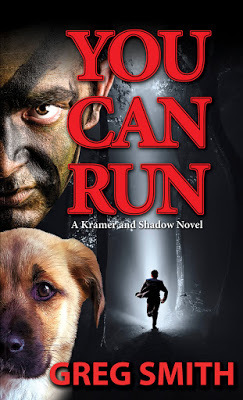
OTHER THAN WRITING, WHAT ELSE DO YOU LOVE?
My wife and I love traditional target archery. We prefer to use bows that are devoid of all the “bells and whistles” others choose to load onto their bows. My hope one day is to have my own traditional English longbow. We also love kayaking, camping, traveling, meeting people and making new friends. Oh, of course we both love experiencing new and interesting eating places. As parents and grandparents, it goes without saying that we love our kids....not forgetting our pets who are aging far too fast!
DID YOU HAVE YOUR BOOK / BOOKS PROFESSIONALLY EDITED BEFORE PUBLICATION?
Every writer, regardless of their experience, should have their material professionally edited. It’s an essential part of maintaining the high standard of integrity that serious readers expect of books they choose to read and of the writers they choose to follow.
WHAT ARE YOUR PLANS FOR THE FUTURE?
Writing-wise, I plan to keep developing my series based upon the characters of Captain Kramer, USMC and his closest friend, Sgt. Shadow (Anatolian Shepherd dog) while people continue to have an interest. And I intend to complete my historical fiction novel, which I have recently decided to make into a two-book publication.
DO YOU SEE YOURSELF IN ANY OF YOUR CHARACTERS?
Not specifically, per se, expect that Captain Kramer and I share a deep love for the welfare of all animals. But having said that, recently my mind has been toying with another story that would prove totally different to anything I have or intend to write, and which would be based upon some of my own real-life experiences. I can see the main character of that book sharing a lot in common with myself.
DOES THE PUBLISHING INDUSTRY FRUSTRATE YOU?
You can lump me together with the vast majority of writers in that question. Reading through the postings on the forums I belong to I constantly come across the frustration of my fellow writers in having to deal with the inconsistencies, unfairness, and ruthlessness of the publishing industry. Personally, I feel that writers do not receive enough viable support when it comes to promoting and marketing their work. I exclude those who have become “best sellers” as they have been fortunate enough to break through the glass ceiling. I would hazard a guess when I say that a huge percentage of us do not possess the financial means to take advantage of all the offers ‘out there’ to promote our work. I have as yet to hear of an organization that is prepared to step forward and invest in those writers they deem to have a product worthy of their FULL support. I will be the first to accept the fact that I might be wrong in this and welcome any writer to set me straight.

DID YOU EVER THINK OF QUITTING?
Yes, once. Then I had a cup of coffee, was berated by my wife, and returned to my keyboard.
HOW WOULD YOU DEFINE ‘SUCCESS’ AS A WRITER.
I can only speak for myself in this. I would regard myself being successful should I ever have a loyal following of devoted readers who persist in asking me to write the next book.
WHAT SHOULD READERS WALK AWAY FROM YOUR BOOKS KNOWING? HOW SHOULD THEY FEEL?
I would like my readers to feel they have truly experienced most of what they read. By that I mean, fear, trepidation, relief, surprise, shock, horror. They should come away realizing that I have a very deep interest and understanding of the subject and the characters I have created and brought to life for the readers’ sake.
HOW MUCH THOUGHT GOES INTO DESIGNING A BOOK COVER?
A great deal. Putting on my other hat and speaking as a graphic designer, whomever designs the cover must have a grasp of the story before she or he can even begin to come up with a concept for the cover. This requires reading at least a good synopsis of the book and may even involve several roughs before designer and writer can agree on the cover.
WHAT’S YOUR ULTIMATE DREAM?
To be retired and to be become a “successful” writer. To share both with my wife.

DESCRIBE YOURSELF IN FIVE WORDS.
Personable, caring, romantic, devoted, imaginative.
WHAT PISSES YOU OFF MOST?
A lot — mostly people who don’t or can’t be bothered in using the brain they have been given before they open their mouths to tear down other people and their dreams and hopes. But worse of all are those who are inhumane to animals — those people I can never, and will never forgive.
WHAT IS THE TITLE OF THE LAST BOOK YOU READ? GOOD ONE?
STRONG MEN ARMED by Robert Leckie. As a historically accurate and meticulous depiction of US Marines fighting and dying in the Pacific during WWII, and based upon the author’s personal experiences and efforts to cull the facts from monumental heaps of military records, I found this book an intriguing read.
WHAT WOULD BE THE VERY LAST SENTENCE YOU’D WRITE?
That is a question only my Final Editor can answer when He deems to end my life as a writer.
WHAT WOULD MAKE YOU HAPPIER THAN YOU ARE NOW? CARE TO SHARE?
Hmmm, another toughie. RIGHT NOW to be fully retired, along with my wife, would make me the happiest. We both have reached that stage in our lives where we feel we have earned the opportunity to take off and explore the world beyond our work cubicles; to have the freedom to share as much time as we like with our kids and grandkids; to be able to find those diminishing places where you can sit beneath the night sky and actually marvel at the Milky Way.
WHERE CAN WE READ YOUR WORK? MAYBE SOME GOOD REVIEWS.
If readers are interested to learn more about myself and see samples of my work, they are welcome to check out these links:

http://gregsmith-writer.weebly.com/
http://tinyurl.com/lbnftqd(Amazon.com)
http://tinyurl.com/pwaz525(Audible.com)
http://tinyurl.com/netku3a(Barnes and Noble.com)
The Pits by Greg Smith is definitely an Action/Crime Fiction crossover novel. Starting in the midst of governmental-sanctioned war and moving through the war on crime, it can be nothing but such a knockout combination. Even though Smith deals with seriously horrific happenings, he has found a good balance. Scenery that could turn the stomachs of most, is treated with tact and heart-felt respect, but still manages to get the message across to readers. I have to say that for me, as an animal lover and rights activist, it is an added bonus that the author is donating a large percentage of proceeds from the sales to aid the battle against dog fighting. If the book were horrid, this might sooth my aching mind a bit, but luckily, the novel is a wonderful accomplishment.
The main characters, Captain Kramer and Corporal Shadow are a great match. The connection between these two is clearly strong and dominates the tale by lending a feeling of complete integrity to the piece. Readers will find that events and periods are painted vividly and succinctly. Like a well-oiled machine, Smith’s work trudges on through the worst of times, yet maintains the best of attitudes. As I said, Smith paints clear and precise images of events and times, but not individuals. In many tales, allowing the landscape to overshadow the characters would leave the storyline lacking connectivity and the personal imagery would be sorely missed. However, Smith’s work is not ‘most stories’. The fact that individuals are not completely in focus adds more focus to the story and its events. Again, the author has managed the balancing act with nary a word out of place.
The plot is well thought out and transitions smoothly from each locale and happening. The violence of war and blood-sport are difficult for some readers, myself included, to get past, but this story is worth it and the scenes are treated with care and precision. Some coarse and vulgar language is included in the book, but only when fitting the tale’s direction. Well written, The Pits places its focus where needed the most- on the story.
C. M. Truxler, 3 December, 2013 — 5 STARS
Book Reviewer http://en.gravatar.com/cmtruxler
THE PITS begins in Afghanistan where the scene is expertly set by the author. It is clear that the author has researched Marine life and the reader feels immediately at home in the world he has created. The heat, the dust, the constant danger are all excellently wrought and by the time the street battle commences in which Kramer and Shadow are both injured, the reader is well invested in both characters and rooting for their safety. This sets up the rest of the novel perfectly. A strong story with an intriguing premise, there is plenty here to keep a reader gripped throughout. Overall, there is much to be admired in this novel. The plot is well thought-out and intricately woven. The characters are strong and relatable – I particularly liked the character of Kramer’s mother. The author did a great job of bringing her to life. In fact, the chapter where Kramer visits his mother and father on the farm feature some of the best writing in the book and some great dialogue. Dialogue is a particular talent of this author’s, with interactions being natural and snappy throughout.
July, 2014 WILDsound Writing Festival – critique committee www.wildsound.ca
An Intense, Moving, and Memorable Story
I've read my fair share of crime novels, military histories, and dramatic literature in general, and I have largely moved away from those genres in exchange for more fictional fare. However, once in a while, I dip my toes back into more realistic novels, and The Pits was my latest choice. Right off the bat, I would have to give it HIGH praise, as it masterfully combined powerful storytelling, great plot development, action-packed chapters, intense dialogue, dramatic and suspenseful moments, and the love between a man and his dog, all without ever being cheesy or contrived. Certain sections of this novel are truly raw, brutal depictions of battle and dogfights occasionally crop up, which were intense to read, but they instantly created a stronger emotional connection to the characters. It's strange to refer to an animal as a key character, but Shadow is written as though he's human, and the relationship between Shadow and Kramer is just like a "buddy cop" adventure, except one of the partners doesn't speak. The dark moments throughout the book were coupled by terse, choppy writing at times to create the sense of danger and tension, a tool often used in crime stories, but effectively and subtly used here as well. I think Smith has a lot of potential, and a whole lot more to give than a single novel. Although the ending certainly wasn't definitive, I wouldn't be surprised if more books were on the way. He has the mind to create great stories and a talent for choosing the right words to tell them.
Veritas Vincit on July 31, 2014 — 4 STARS
Action-packed and testosterone-filled read
There was a ton of action and the main character is a lean, mean Marine who's a softie when it comes to animals - especially dogs. He treats his pets like people and shares the spotlight with his canine pal. Shadow, his "found" dog, shares top billing with Capt. Cramer throughout the story and they share hero status as well.
The war and the fight scenes with the dogs are graphic as are the scenes where the characters fight. The dog fights are especially graphic, detailed and realistic, which might cause some more squeamish readers to skim those sections. The graphic content is integral to the plot and not gratuitous at all.
This is a true action book, complete with a great action hero main character and a shadowy villain who seems to have eyes and ears everywhere.
The story builds to a nice climax filled with lots of fighting, shooting and chasing the bad guys - even jumping onto a moving boat from a wall above the water.
If you love a good action/adventure book where the hero has a righteous cause, you'll love The Pits by Greg Smith and you'll be excited to know that the ending hints at a second book.
Robin Surface on July 30, 2014 — 4 STARS

Clancy's comment: Well done, Greg. Thanks for taking the time to be interviewed. Your books sound like they are full of action. Good luck! Keep going. I've left you an image below that might make you a tad homesick.
I'm ...


Published on September 17, 2015 04:28
September 16, 2015
17 September 2015 - FACTS ABOUT SIR ISAAC NEWTON

FACTS ABOUT
SIR ISAAC NEWTON
G'day folks,
Sir Isaac Newton PRS MP was an English physicist and mathematician who is widely recognised as one of the most influential scientists of all time and as a key figure in the scientific revolution. Considered one of the greatest scientific minds of all time, mathematician and physicist Isaac Newton formulated theories about motion, gravity and calculus, among a range of other topics. The son of an illiterate farmer, Newton also was a temperamental loner and often secretive about his work. Find out more about this fascinating Englishman, from the job he held that involved sending people to the gallows to the cause of one of his most bitter rivalries.
1. His unhappy childhood helped shape his secretive personality.
Newton was born prematurely on Christmas Day 1642 at his family’s home, Woolsthorpe Manor, near the town of Grantham, England, several months after the death of his father, an illiterate farmer. When Newton was three, his mother wed a wealthy clergyman, Barnabas Smith, who didn’t want a stepson. Newton’s mother went to live with her new husband in another village, leaving behind her young son in the care of his grandparents. The experience of being abandoned by his mother scarred Newton and likely played a role in shaping his solitary, untrusting nature. As a teen, he made a list of his past sins and among them was: “Threatening my father and mother Smith to burn them and the house over them.” As an adult, Newton immersed himself in his work, had no hobbies and never married. He even remained silent about some of his scientific and mathematical discoveries for years, if he published them at all.

2. Newton’s mother wanted him to be a farmer.
At age 12, Newton was enrolled in a school in Grantham, where he boarded at the home of the local apothecary because the daily walk from Woolsthorpe Manor was too long.
Initially, he wasn’t a strong student; however, as the story goes, following a confrontation with a school bully Newton started applying himself in an effort to best the other boy and transformed into a top student. However, at age 15 or 16, he was ordered to quit school by his mother (then widowed for a second time) and return to Woolsthorpe Manor to become a farmer. The teen was uninterested in the job and fared poorly at it. Eventually, Newton’s mother was persuaded by her son’s former headmaster in Grantham (where, incidentally, British Prime Minister Margaret Thatcher was born in 1925) to allow him to return to school. After finishing his coursework there, Newton left for Trinity College, University of Cambridge in 1661, putting farming behind him for good.
3 The Black Death inadvertently set the stage for one of his most famous insights.
In 1665, following an outbreak of the bubonic plague in England, Cambridge University closed its doors, forcing Newton to return home to Woolsthorpe Manor. While sitting in the garden there one day, he saw an apple fall from a tree, providing him with the inspiration to eventually formulate his law of universal gravitation. Newton later relayed the apple story to William Stukeley, who included it in a book, “Memoir of Sir Isaac Newton’s Life,” published in 1752.
In 2010, a NASA astronaut carried a piece of the ancient apple tree aboard the space shuttle Atlantis for a mission to the International Space Station. The Royal Society, a scientific organization once headed by Newton, loaned the piece of the tree for the voyage, as part of a celebration of the 350th anniversary of the group’s founding. Today, the original apple tree continues to grow at Woolsthorpe Manor.

4. As a professor at Cambridge, his lectures were poorly attended.
In 1669, Newton, then 26, was appointed the Lucasian professor of mathematics at Cambridge, one of the world’s oldest universities, whose origins date to 1209. (Newton was the second person to hold the Lucasian professorship; the 17th person, from 1979 to 2009, was physicist and “A Brief History of Time” author Stephen Hawking.) Although he remained at Cambridge for nearly 30 years, Newton showed little interest in teaching or in his students, and his lectures were sparsely attended; frequently, no one showed up at all. Newton’s attention was centered on his own research.
5. Newton ran the Royal Mint and had forgers executed.
In 1696, Newton was named to the job of warden of the Royal Mint, which was responsible for producing England’s currency. He left Cambridge, his long-time home, and moved to his nation’s capital city, where the mint was located in the Tower of London. Three years later, Newton was promoted to the more lucrative position of master of the mint, a post he held until his death in 1727. During his tenure at the mint, Newton supervised a major initiative to take all of the country’s old coins out of circulation and replace them with more reliable currency. He also was focused on investigating counterfeiters, and as a result became acquainted with the city’s seedy underbelly as he personally tracked down and interviewed suspected criminals, receiving death threats along the way. A number of forgers he went after were sent to the gallows.

6. He had a serious interest in alchemy.
In addition to the scientific endeavors for which he’s best known, Newton spent much of his adult life pursuing another interest, alchemy, whose goals included finding the philosopher’s stone, a substance that allegedly could turn ordinary metals like lead and iron into gold. He was secretive about his alchemical experiments and recorded some of his research in code.
Among his other research projects, Newton analyzed the Bible in an attempt to find secret messages about how the universe works.
7. Newton served in Parliament—quietly.
From 1689 to 1690, Newton was a member of Parliament, representing Cambridge University. During this time, the legislative body enacted the Bill of Rights, which limited the power of the monarchy and laid out the rights of Parliament along with certain individual rights. Newton’s contributions to Parliament apparently were limited, though; he reportedly spoke only once, when he asked an usher to close a window because it was chilly. Nevertheless, while in London Newton became acquainted with a number of influential people, from King William III to the philosopher John Locke. Newton served a second brief term in Parliament, from 1701 to 1702, and again seems to have contributed little.
8. He had fierce rivalries.
When it came to his intellectual rivals, Newton could be jealous and vindictive. Among those with whom he feuded was German mathematician and philosopher Gottfried Leibniz; the two men had a bitter battle over who invented calculus. Newton developed a version of calculus in the 1660s but didn’t publish his work at the time. In the 1670s, Leibniz formulated his own version of calculus, publishing his work a decade later. Newton later charged that the German scholar had plagiarized his unpublished writings after documents summarizing it circulated through the Royal Society. Leibniz contended he’d reached his results independently and implied that Newton had stolen from his published work. In an effort to defend himself, Leibniz eventually appealed to the Royal Society and in 1712 Newton, who’d served as the organization’s president since 1703, agreed that an impartial committee would be assembled to look into the issue. Instead, he packed the committee with his supporters and even penned the group’s report, which publicly credited him with discovering calculus. Today, however, Leibniz’s system of calculus is the one commonly used.

9. Newton was knighted.
In 1705, Newton was knighted by Queen Anne. By that time, he’d become wealthy after inheriting his mother’s property following her death in 1679 and also had published two major works, 1687’s “Mathematical Principles of Natural Philosophy” (commonly called the “Principia”) and 1704’s “Opticks.” After the celebrated scientist died at age 84 on March 20, 1727, he was buried in Westminster Abbey, the resting place of English monarchs as well as such notable non-royals as Charles Darwin, Charles Dickens and explorer David Livingstone.

Clancy's comment: Yet, another interesting character who walked before us. Obviously, a very determined man.
I'm ...


Published on September 16, 2015 03:33
September 15, 2015
16 September 2015 - WHAT WAS THE 'RIOT ACT'?
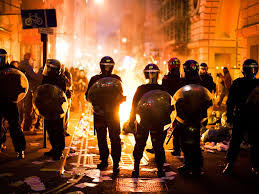
WHAT WAS THE 'RIOT ACT'?
G'day folks,
Today's post relates to an expression my mother used all the time when I was a kid.
Parents who “read the riot act” to their unruly children may not know it, but they are following in the footsteps of British magistrates who enforced that country’s Riot Act, which first took effect on August 1, 1715. Parliament passed the Riot Act—officially known as “An Act for preventing tumults and riotous assemblies, and for the more speedy and effectual punishing the rioters”—in response to growing civil unrest by Jacobite mobs who in 1714 revolted against the coronation of German-born Protestant King George I of Hanover, who succeeded Catholic Queen Anne, the last Stuart monarch.
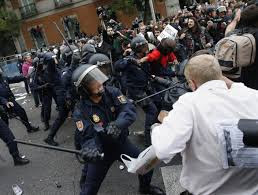
The draconian Riot Act authorized local officials in the United Kingdom and British possessions such as the American colonies and Canada to disperse groups of 12 or more people who “unlawfully, riotously and tumultuously assembled together to the disturbance of the public peace.” The Riot Act stipulated that magistrates first read the following proclamation to disorderly crowds: “Our sovereign Lord the King chargeth and commandeth all persons, being assembled, immediately to disperse themselves, and peaceably to depart to their habitations, or to their lawful business, upon the pains contained in the act made in the first year of King George, for preventing tumults and riotous assemblies. God save the King.” Anyone who failed to leave one hour after the reading of the Riot Act would be guilty of a felony, punishable by prison time, hard labor and even death. The Riot Act authorized authorities to use force to disperse crowds and indemnified them against prosecution for injuring or killing protestors.
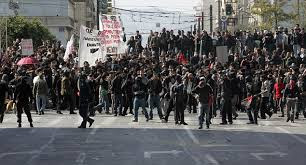
Implementation of the law proved challenging as defendants often claimed they never heard the reading of the Riot Act—certainly possible in a noisy melee—and speakers needed to recite the proclamation’s precise language in order for the law to take effect. Omissions of phrases, especially “God save the King,” resulted in several verdicts being overturned. By the 1900s, the use of the Riot Act had become rare, but perhaps surprisingly, it remained in effect in parts of the United Kingdom until its ultimate repeal in 1973. Today, only scolding parents fed up with their rowdy children are left reading the riot act in Britain.

Clancy's comment: There ya go, folks. Now you know.
I'm ...


Published on September 15, 2015 03:39
September 14, 2015
15 September 2015 - WEIRD STUFF

WEIRD STUFF
G'day folks,
Time for some more weird pictures from around the world. Brace yourself ...
















Clancy's comment: Mm ... Hope these made you smile.
I'm ...


Published on September 14, 2015 04:21
September 13, 2015
14 September 2015 - JUDITH NICOLAS - Guest Graphic Designer

JUDITH NICOLAS
- Guest Graphic Designer -
G'day folks,
Welcome to an interview with a very talented graphic designer from Barcelona. Below, you will see some of her bookcover designs.
Welcome, Judith ...
1. TELL US A LITTLE ABOUT YOURSELF AND YOUR ARTISTIC JOURNEY.My name is Judith.I’m a Barcelona based graphic designer.I have over 10 years experience in this magical world of Graphic Design.I have a strong passion for design and offer the best results improving every day.The secret to getting a good design is to study in depth the information that the clientprovides and attend and listen to all his suggestions, recommendations and changes.Here’s a short list of some things I do: Book cover design, posters, CD covers, Logo & Identity, t-shirts, invitations, menus, labels, and more…I love chocolate, sun, sport and big smiles… Everything works better with a smile.
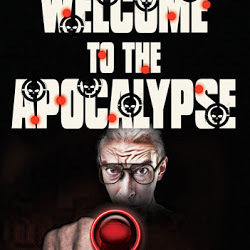
2. WERE YOU GOOD AT DRAWING AS A KID?No. I was good a painter.
3. WHEN AND HOW DID YOU BECOME AN ARTIST?Designer wasn’t my first career choice. But sooner or later my truly vocation would spring up.
4. WHAT DO YOU ENJOY MOST ABOUT BEING AN ARTIST?Artwork is a means to convey an artist's feelings and emotions to the viewer. I really enjoy feel and make others feel with my designs.
5. WHAT IS THE HARDEST THING ABOUT BEING AN ARTIST?Find the inspiration, the worst situation for a creative is to be mentally blocked.

6. DO YOU WORK FOR YOURSELF, OTHERS OR BOTH?I’m currently a freelance artist.
7. WHAT WERE YOU IN A PAST LIFE, BEFORE YOU BECAME AN ARTISTSecretary and Dog & Cat Groomer.
8. WHAT IS YOUR GREATEST ACHIEVEMENT?I always think that my last design is my greatest achievement. I look at each design a new challenge
9. WHAT ARE YOU WORKING ON AT THE MOMENT?I’m really very proud of my current project. Is a book cover that must have a medieval Fables Style.
10. WHAT IS YOUR FAVOURITE MEDIUM?Digital and Vector artwork both equally.
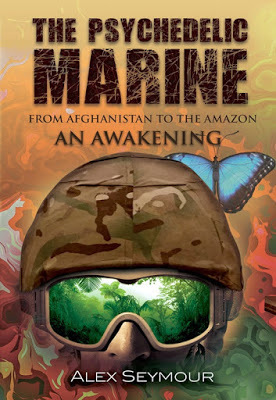
11. WHAT INSPIRES YOU?Many things, it depends of the project. But when I need to design a personal project my inspiration is nature. Nature is the most wonderful work of art that exists.
12. WHAT DO YOU PREFER TO PAINT OR ILLUSTRATE?Paint.
13. DO YOU HAVE ANY TIPS FOR EMERGING ARTISTS?Being true to oneself and work very hard ( never give up ).
14. DO YOU SUFFER FROM ARTIST’S BLOCK?Yes. Sometimes.
15. DO YOU HAVE A PREFERRED SCHEDULE?It depends. I do normally work all day.
16. DO YOU HAVE A FAVOURITE PLACE TO WORK?My Studio.
17. WHAT IS YOUR GREATEST JOY IN YOUR WORK?The same answer of the 4 point.
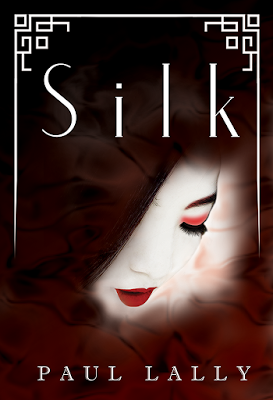
18. WHO IS YOUR FAVOURITE ARTIST / ILLUSTRATOR AND WHY?Boris Indrikov, absolutely gorgeus!
19. WHAT’S THE GREATEST COMPLIMENT YOU EVER RECEIVED?Literally: “The design is way, way beyond anything I could of hoped for. Your profile describes the 'magic of graphic design' Magic happens and you are proof...” It really touched me.
20. WHAT WAS THE WORST COMMENT YOU EVER RECEIVED?I’ve never received an offensive or too much negative comment. On my opinion the worst comment is “the no comment” Ignore our work is the worst situation.
21. WRITERS ARE SOMETIMES INFLUENCED BY THINGS THAT HAPPEN IN THEIR OWN LIVES. ARE YOU?No. I must have an open mind and try to think and feel as my client.
22. HOW MANY BOOKS HAVE YOU ILLUSTRATED?Quite a lot.
23. HAVE YOU WON ANY PRIZES OR AWARDS?Yes.
24. WHAT DID THEY MEAN TO YOU?It’s worth the hard work.
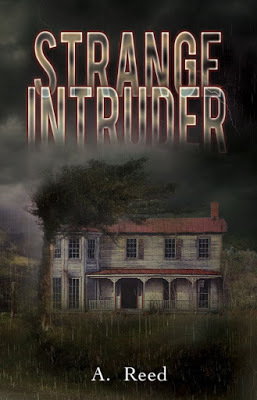
25. OTHER THAN DRAWING, WHAT ELSE DO YOU LOVE?Artistic disciplines like dance, music and others.
26. WHAT WOULD YOU SAY TO ALL WORLD LEADERS IF YOU HAD THE OPPORTUNITY?Nothing, I don't think they will hear me.
27. DESCRIBE YOUR PERFECT DAY.A coffee, good reading, and peace. 28. WHAT ARE YOUR PLANS FOR THE FUTURE?I try to be a better person every day, these are my plans.
29. HAVE YOU MET SOME GREAT PEOPLE ALONG THE WAY?Yes. My grandmother is the greatest person I ever met.
30. HOW DO YOU PROMOTE YOURSELF?My clients, and socialnetwork.
31. WHAT HAS BEEN MOST THE MOST SUCCESSFUL PROMOTION?My clients support.

32. DO YOU MENTOR OTHERS? I do not think that I can contribute a lot.
33. DO YOU HAVE A MENTOR?Some friends.
34. ANYTHING YOU’D LIKE TO ADD?I try to do my best and enjoy with my work.

http://www.judithsdesign.com/

Clancy's comment: Thank you, Judith. Very impressive work. As I've said before, I am hopeless at drawing. In fact, I'd probably stuff-up a stick figure. So, I admire anyone who can draw.
I'm ...


Published on September 13, 2015 03:15
September 12, 2015
13 September 2015 - JIMMY HOFFA
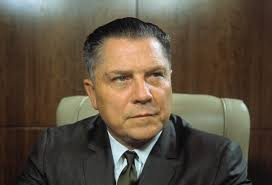
JIMMY HOFFA
G'day folks,
Welcome to the life of an infamous man.
On July 31, 1975, James Riddle Hoffa, one of the most influential American labor leaders of the 20th century, disappears in Detroit, Michigan, never to be heard from again. Though he is popularly believed to have been the victim of a Mafia hit, conclusive evidence was never found, and Hoffa’s death remains shrouded in mystery to this day.

Born in 1913 to a poor coal miner in Brazil, Indiana, Jimmy Hoffa proved a natural leader in his youth. At the age of 20, he helped organize a labor strike in Detroit, and remained an advocate for downtrodden workers for the rest of his life. Hoffa’s charisma and talents as a local organizer quickly got him noticed by the Teamsters and carried him upward through its ranks. Then a small but rapidly growing union, the Teamsters organized truckers across the country, and through the use of strikes, boycotts and some more powerful though less legal methods of protest, won contract demands on behalf of workers.
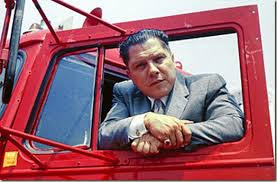
Hoffa became president of the Teamsters in 1957, when its former leader was imprisoned for bribery. As chief, Hoffa was lauded for his tireless work to expand the union, and for his unflagging devotion to even the organization’s least powerful members. His caring and approachability were captured in one of the more well-known quotes attributed to him: “You got a problem? Call me. Just pick up the phone.”
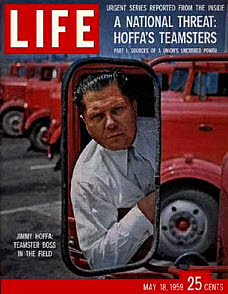
Hoffa’s dedication to the worker and his electrifying public speeches made him wildly popular, both among his fellow workers and the politicians and businessmen with whom he negotiated. Yet, for all the battles he fought and won on behalf of American drivers, he also had a dark side. In Hoffa’s time, many Teamster leaders partnered with the Mafia in racketeering, extortion and embezzlement. Hoffa himself had relationships with high-ranking mobsters, and was the target of several government investigations throughout the 1960s. In 1967, he was convicted of bribery and sentenced to 15 years in prison.
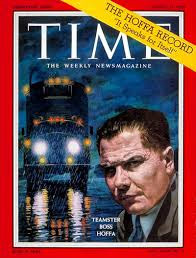
While in jail, Hoffa never ceded his office, and when Richard Nixon commuted his sentence in 1971, he was poised to make a comeback. Released on condition of not participating in union activities for 10 years, Hoffa was planning to fight the restriction in court when he disappeared on July 31, 1975, from the parking lot of a restaurant in Detroit, not far from where he got his start as a labor organizer. Several conspiracy theories have been floated about Hoffa’s disappearance and the location of his remains, but the truth remains unknown.

Clancy's comment: A very interesting part of history in the US.
I'm ...

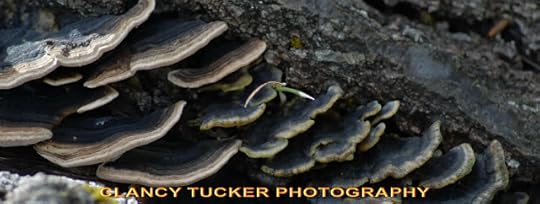
Published on September 12, 2015 02:44
September 11, 2015
12 September 2015 - THE HISTORY OF BEER

THE HISTORY OF BEER
G'day folks,
Ever wondered about beer and its origins? Look no further.
If you’re searching for an original brewmaster to toast the next time you knock back a cold one, you might be out of luck. It’s difficult to attribute the invention of beer to a particular culture or time period, but the world’s first fermented beverages most likely emerged alongside the development of cereal agriculture some 12,000 years ago. As hunter-gatherer tribes settled into agrarian civilizations based around staple crops like wheat, rice, barley and maize, they may have also stumbled upon the fermentation process and started brewing beer. In fact, some anthropologists have argued that these early peoples’ insatiable thirst for hooch may have contributed to the Neolithic Revolution by inspiring new agricultural technologies.

The earliest known alcoholic beverage is a 9,000-year-old Chinese concoction made from rice, honey and fruit, but the first barley beer was most likely born in the Middle East. While people were no doubt imbibing it much earlier, hard evidence of beer production dates back about 5,000 years to the Sumerians of ancient Mesopotamia. Archeologists have unearthed ceramic vessels from 3400 B.C. still sticky with beer residue, and 1800 B.C.’s “Hymn to Ninkasi”—an ode to the Sumerian goddess of beer—describes a recipe for a beloved ancient brew made by female priestesses. These nutrient-rich suds were a cornerstone of the Sumerian diet, and were likely a safer alternative to drinking water from nearby rivers and canals, which were often contaminated by animal waste.

Beer consumption also flourished under the Babylonian Empire, but few ancient cultures loved knocking back a few as much as the Egyptians. Workers along the Nile were often paid with an allotment of a nutritious, sweet brew, and everyone from pharaohs to peasants and even children drank beer as part of their everyday diet. Many of these ancient beers were flavored with unusual additives such as mandrake, dates and olive oil. More modern-tasting libations would not arrive until the Middle Ages, when Christian monks and other artisans began brewing beers seasoned with hops.
Now, here are a few shots of beer taken at various locations by a great Thai photographer, Wipaporn.Wi is a tour guide, and she often leaves these pictures on Facebook. Naturally, I saved them for a day like today. These are some of my favourite beers, not to mention their locations.






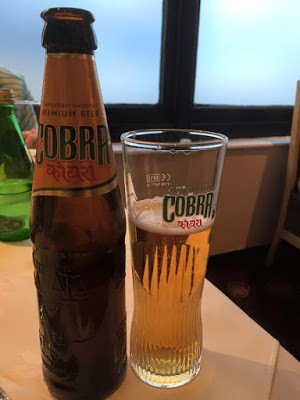
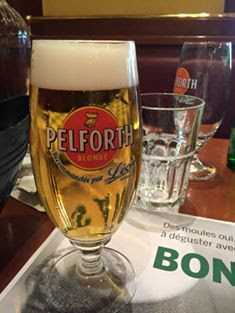

Clancy's comment: I love beer, having served heaps of it to others and drunk much of it all over the world.
Hic ... I'm ...
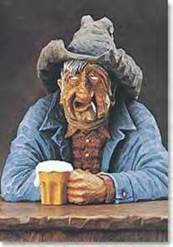

Published on September 11, 2015 04:07



